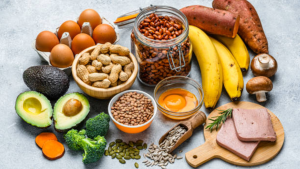For many individuals, a caffeinated beverage is an essential part of their morning ritual. Tea and coffee stand out as two of the world's most beloved drinks, celebrated for their distinct flavors, cultural importance, and numerous health benefits. Whether you are drawn to coffee or tea, understanding how they impact your body can guide you in making well-informed choices about your daily drink.

Both coffee and tea are rich in antioxidants, offering advantages such as promoting brain and heart health, accelerating metabolism, and strengthening immune function. The optimal choice hinges on your caffeine sensitivity, health requirements, and desired energy levels. Ultimately, it's about evaluating how each beverage makes you feel. Whether you prefer coffee's robust kick or tea's calming boost, both can be integrated into a healthy lifestyle when consumed thoughtfully. Base your decision on your specific needs and reactions.
Tea is created by infusing the dried leaves of the Camellia sinensis plant, with various types like green tea, black tea, and white tea resulting from different fermentation and drying processes. Tea's key ingredients include polyphenols, which act as antioxidants to combat oxidative stress and inflammation, and amino acids that support brain health and cognitive performance.
Coffee is prepared from roasted and ground coffee beans, with its composition changing based on brewing technique, roasting intensity, and grinding process. Coffee's key ingredients include caffeine, which enhances alertness and dopamine levels, and antioxidants that aid in reducing inflammation and protecting brain cells.
Tea provides several health-enhancing ingredients.
Green tea, white tea, and oolong tea provide unique advantages depending on their processing methods, whereas herbal teas utilize seeds, roots, and fruits for diverse health benefits.
Coffee delivers numerous long-term health benefits:
Both beverages are generally safe when consumed in moderation; however, excessive intake (especially coffee) can lead to adverse effects.
Coffee may cause potential side effects such as irritability and hyperactivity, anxiety and sleep disturbances, headaches, and tremors, particularly in excessive amounts. The severity of these effects varies from person to person, primarily based on caffeine sensitivity and the quantity consumed.
Tea is typically less risky when consumed in moderation, but it does contain caffeine, albeit less than coffee. Caffeine levels will vary based on the specific tea type.
Methods of preparing tea:
Methods of preparing coffee:
Newer articles
Older articles
 Smith Eyes Grenada Test Return After Injury Recovery
Smith Eyes Grenada Test Return After Injury Recovery
 Google Maps Boosts Navigation Precision with Fused Orientation Provider Update
Google Maps Boosts Navigation Precision with Fused Orientation Provider Update
 Earth Sciences Minister Rijiju Expresses Frustration Over Atos Supercomputer Delay, Jeopardizing Weather Forecast Upgrades
Earth Sciences Minister Rijiju Expresses Frustration Over Atos Supercomputer Delay, Jeopardizing Weather Forecast Upgrades
 Washington Freedom Snatch Last-Ball Win Over Knight Riders in MLC Thriller; Playoff Hopes Soar
Washington Freedom Snatch Last-Ball Win Over Knight Riders in MLC Thriller; Playoff Hopes Soar
 East Africa Rift: Mantle Upwelling Drives Birth of New Ocean, Study Finds
East Africa Rift: Mantle Upwelling Drives Birth of New Ocean, Study Finds
 Colon Cancer: Don't Ignore These 5 Subtle Warning Signs
Colon Cancer: Don't Ignore These 5 Subtle Warning Signs
 Prasidh Krishna Vows to Sharpen Bowling After Costly Leeds Performance
Prasidh Krishna Vows to Sharpen Bowling After Costly Leeds Performance
 Gavaskar Urges India to Replace Thakur with Yadav for Second Test Against England
Gavaskar Urges India to Replace Thakur with Yadav for Second Test Against England
 Rishabh Pant's Unconventional Batting Style Is Revolutionizing Cricket, Says Greg Chappell
Rishabh Pant's Unconventional Batting Style Is Revolutionizing Cricket, Says Greg Chappell
 Vitamin B12 Deficiency: Cardiologist Explains Symptoms, Sources, and Why You're Always Tired
Vitamin B12 Deficiency: Cardiologist Explains Symptoms, Sources, and Why You're Always Tired